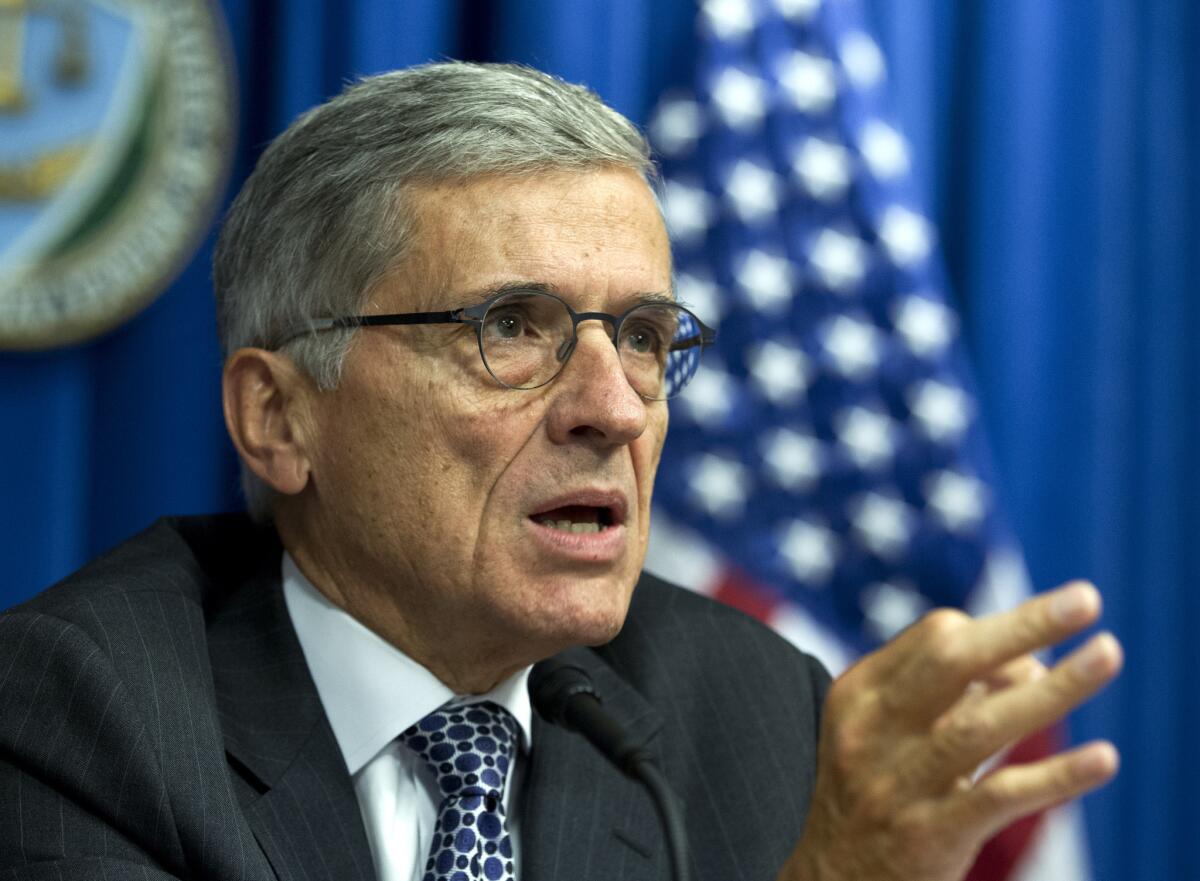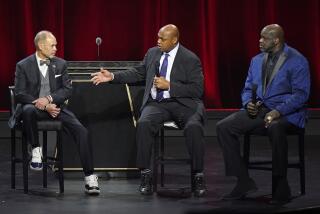Editorial: Watching cable on the Web

Federal Communications Commission Chairman Tom Wheeler has said that one of his top goals is to promote competition in the industries he regulates. The agency is now mulling a rule change that could increase competition and choice for TV viewers by helping companies launch pay-TV services that stream channels through the Internet. It’s a good idea, but it wouldn’t do much to counteract the forces that are driving pay-TV bills into the stratosphere.
At issue is how the FCC defines a “multichannel video programming distributor,” a category now reserved for companies such as Comcast, DirecTV and Verizon FiOS that provide a pipeline (wired or wireless) and transmit content through it. Such companies are entitled to at least two important protections: Local TV stations must negotiate with them in good faith over retransmission fees, and competing pay-TV operators cannot deny them access to the networks they own. After considering the question for more than 2 1/2 years, the FCC may soon propose to expand the category to include TV services that use the Internet to provide programs as they are aired — in other words, not video-on-demand services such as Netflix, but companies that would more or less replicate cable TV online.
Putting Internet-based TV services in the same category as cable and satellite TV would certainly help upstarts get to the bargaining table with broadcasters. Such a move by the FCC should also persuade the U.S. Copyright Office to treat online services the same as cable TV operators, effectively granting them vital licenses to the copyrighted programs the networks carry. The upstarts would still have to pay for these rights, however. They’d also run into the same constraints that cable and satellite companies do when negotiating with the media conglomerates that dominate TV programming. These content providers typically insist on selling their channels in a bundle, which is the main reason the typical pay-TV package is a giant, costly jumble of dozens of channels.
The FCC may not have the authority to break up such bundles. The best it may be able to do is bar the bundling of local TV stations with non-broadcast networks such as ESPN, Fox News, the Golf Channel or Showtime. That would help a company such as Aereo, which wants to offer consumers a low-cost way to view their local TV broadcasts through the Internet, but not companies such as Sony and Dish Network, which are piecing together full-fledged online alternatives to cable. Nevertheless, it’s time for the FCC to create a common set of rules for pay-TV providers regardless of how they transmit their signals, and to welcome the new competitors that broadband makes possible.
More to Read
A cure for the common opinion
Get thought-provoking perspectives with our weekly newsletter.
You may occasionally receive promotional content from the Los Angeles Times.






